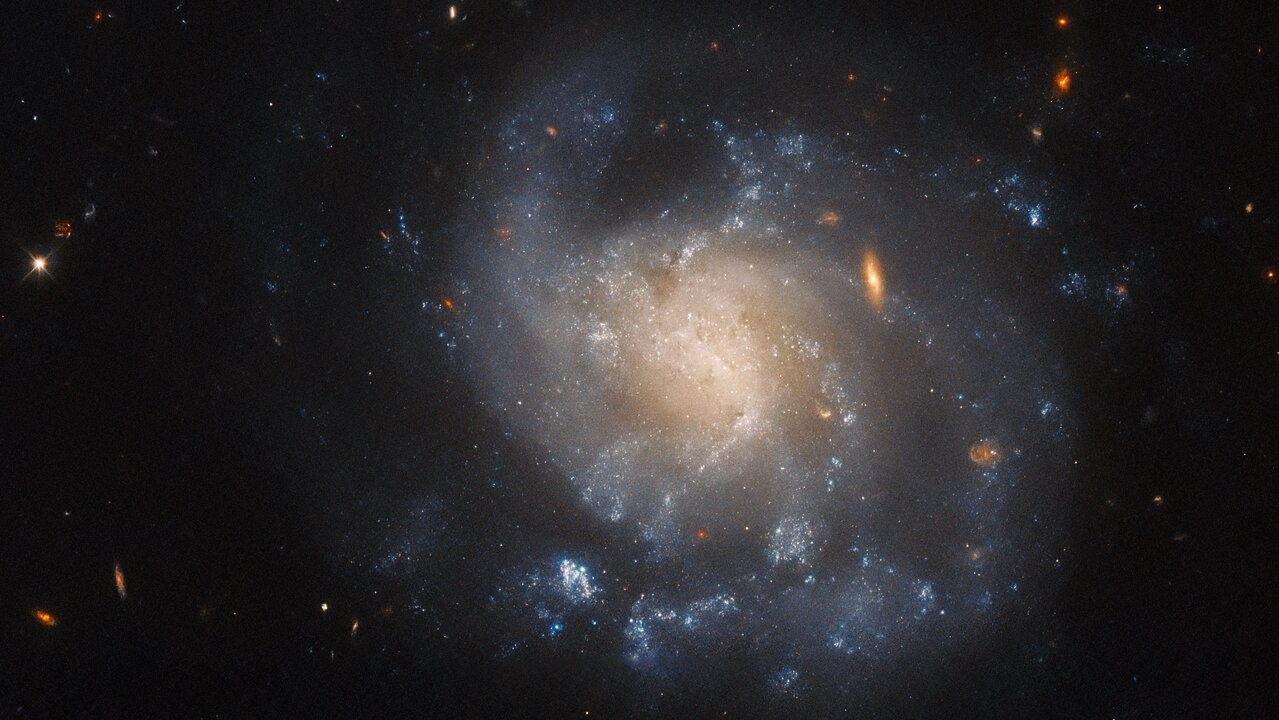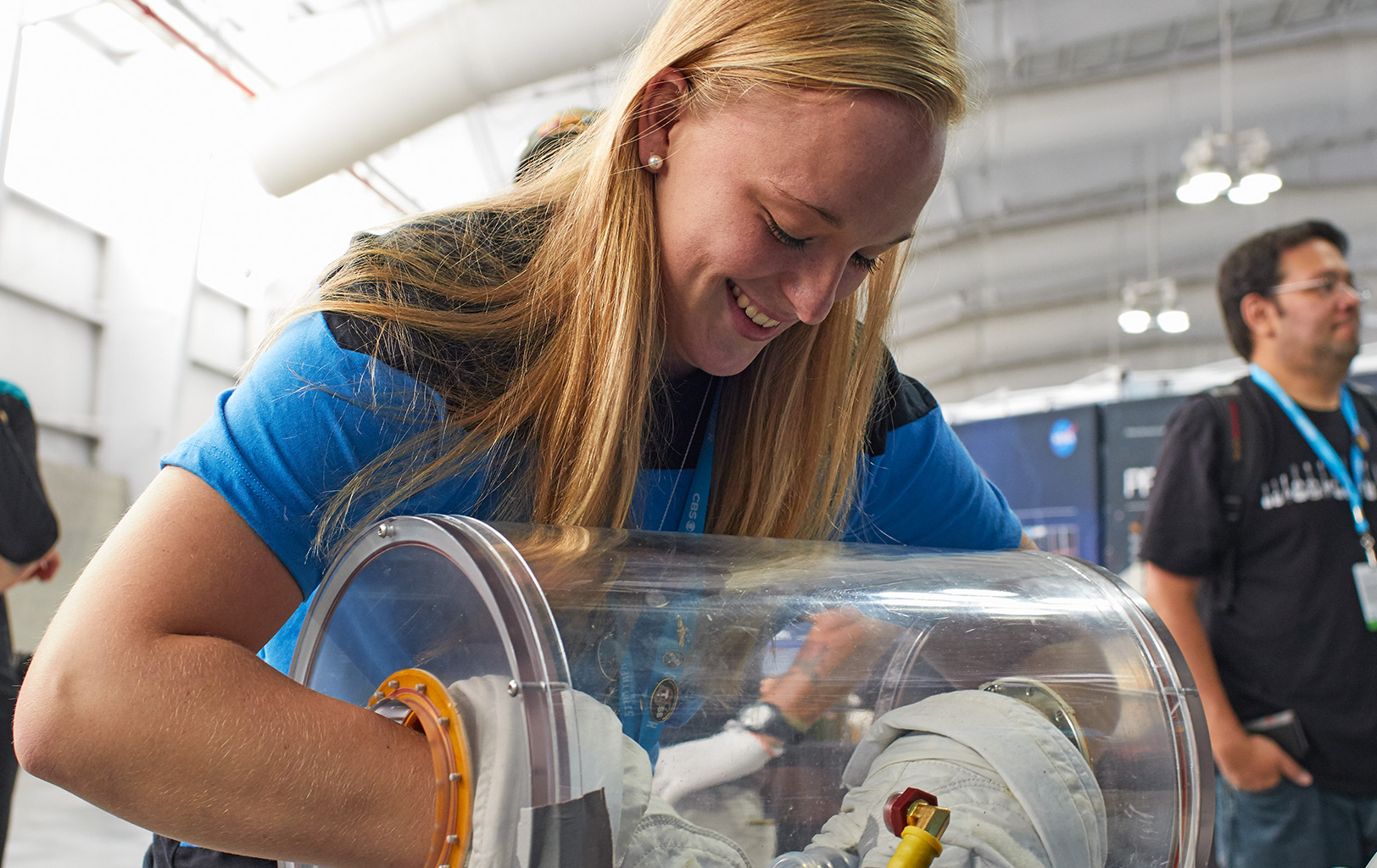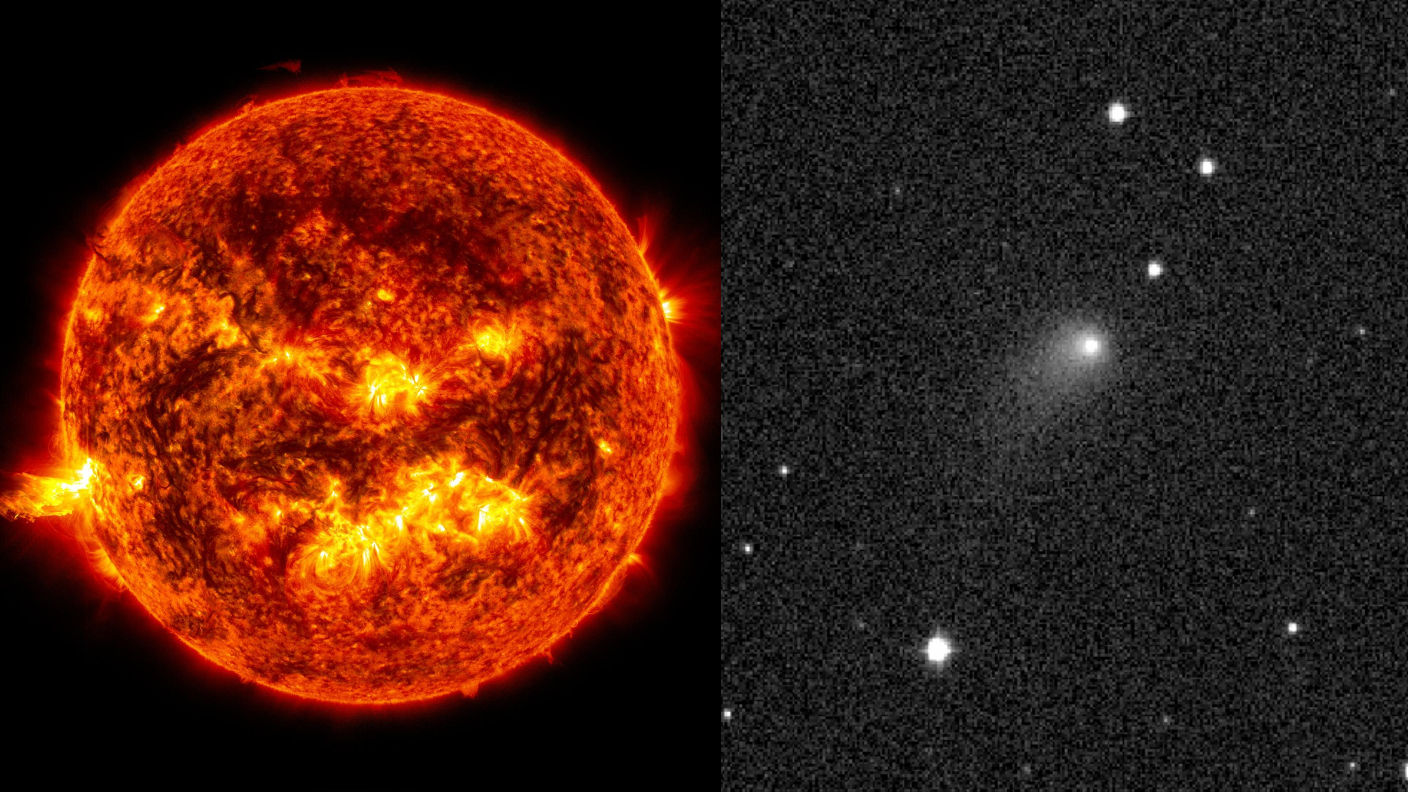Hubble Space Telescope sees lonely galaxy looming in isolation (photo)
IC 1776 lies over 150 million light-years from Earth and is believed to have recently hosted a supernova.

A distant galaxy looms in lonely isolation in a new photo from the Hubble Space Telescope.
The galaxy, called IC 1776, lies over 150 million light-years from Earth in the constellation Pisces. Hubble, a joint mission led by NASA and the European Space Agency (ESA), snapped this new view of the galaxy, capturing its irregularly-shaped structure and indistinct spiral arms.
"The edges are faint and the core has a pale yellow glow. It is dotted with small, wispy, blue regions where stars are forming," ESA officials said in a statement. "A few stars and small galaxies in warm colors are visible around it."
Related: The best Hubble Space Telescope images of all time!
Observations of IC 1776 suggest the galaxy recently hosted a violent star explosion, also known as a supernova. Data from the Lick Observatory Supernova Search — a robotic telescope that scours the night sky in search of transient phenomena such as supernovas — revealed remnants of the stellar explosion, named SN 2015ap, with observations collected in 2015.
Hubble then followed up with observations of the supernova’s aftermath as part of two different projects, both of which were designed to investigate the debris left behind by such stellar explosions. The ESA shared Hubble’s latest view of IC 1776, in which the supernova SN 2015ap occurred, on Sept. 4.
"A variety of telescopes automatically follow up the detection of supernovae to obtain early measurements of these events’ brightnesses and spectra," ESA officials said in the statement. "Complementing these measurements with later observations which reveal the lingering energy of supernovae can shed light on the systems which gave rise to these cosmic cataclysms in the first place."
Breaking space news, the latest updates on rocket launches, skywatching events and more!

Samantha Mathewson joined Space.com as an intern in the summer of 2016. She received a B.A. in Journalism and Environmental Science at the University of New Haven, in Connecticut. Previously, her work has been published in Nature World News. When not writing or reading about science, Samantha enjoys traveling to new places and taking photos! You can follow her on Twitter @Sam_Ashley13.
